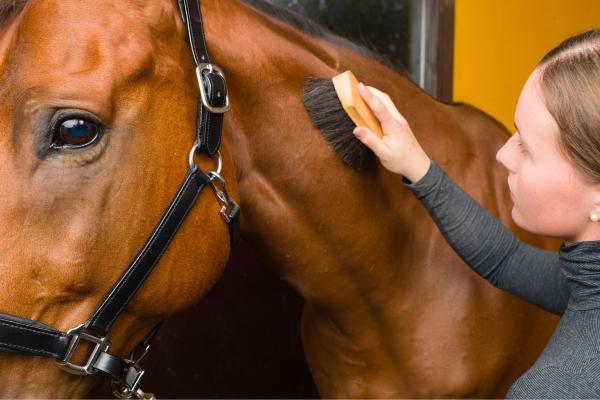Are you passionate about the equestrian world? If you love horses, becoming a horse caretaker could be a rewarding and fulfilling career path. This role is essential to ensure the proper health and wellbeing of horses, as they require specific care and maintenance. You can prepare for this profession by enrolling in specialized training programs, such as those offered by Master D.

The main responsibility of a horse caretaker is to promote the health, comfort, and proper daily management of horses. Tasks typically include:
Observing the horses' behavior to detect any signs of illness or discomfort, such as lameness, mood changes, or appetite loss. Early detection allows timely veterinary intervention.
Preparing and providing the appropriate feed based on each horse’s age, health condition, and activity level. Ensuring constant access to clean, fresh water is also essential.
Maintaining hygiene in the stable by regularly cleaning and replacing bedding to prevent infections and maintain overall cleanliness.
Regular brushing helps remove dirt and dead hair, stimulates circulation, and supports healthy skin and coat.
Caretakers may be responsible for ensuring horses remain active through walking or basic training sessions to maintain fitness.
Working closely with professionals to manage routine check-ups, vaccinations, hoof care, and administering treatments.
Assisting with loading and unloading horses for transport and ensuring they are attended to during relocation is also part of the job.
Being a horse caretaker requires patience, responsibility, and a deep love for animals, making it a hands-on career driven by dedication and care.
If you're inspired by this role, proper training is key. Below are two core courses that can prepare you for success:
This course offers comprehensive training in daily horse care, including proper feeding, stable hygiene, grooming, and disease prevention. It also introduces safe handling techniques, ideal for those new to the field.
Designed for those aiming for a more technical role, this advanced course covers equine anatomy and physiology, first aid, disease identification, and collaboration with veterinarians to administer specific treatments.
Additionally, you can broaden your expertise with complementary programs in equine physiotherapy and rehabilitation, or animal-assisted therapy, which further enhance your skills in horse care.
Once trained, you can pursue various career paths in the equine industry, such as:
Riding schools and equestrian centers
Equine-assisted therapy facilities
Veterinary clinics specialized in horses
Competitive equestrian teams
Horse breeding farms or stud farms
Private estates or ranches with horses
Enrolling in quality training programs like those from Master D will open doors in this growing field. Becoming a horse caretaker is a fulfilling profession that combines passion, knowledge, and the joy of working closely with horses.
animal tags: Horse Caretaker
We created this article in conjunction with AI technology, then made sure it was fact-checked and edited by a Animals Top editor.